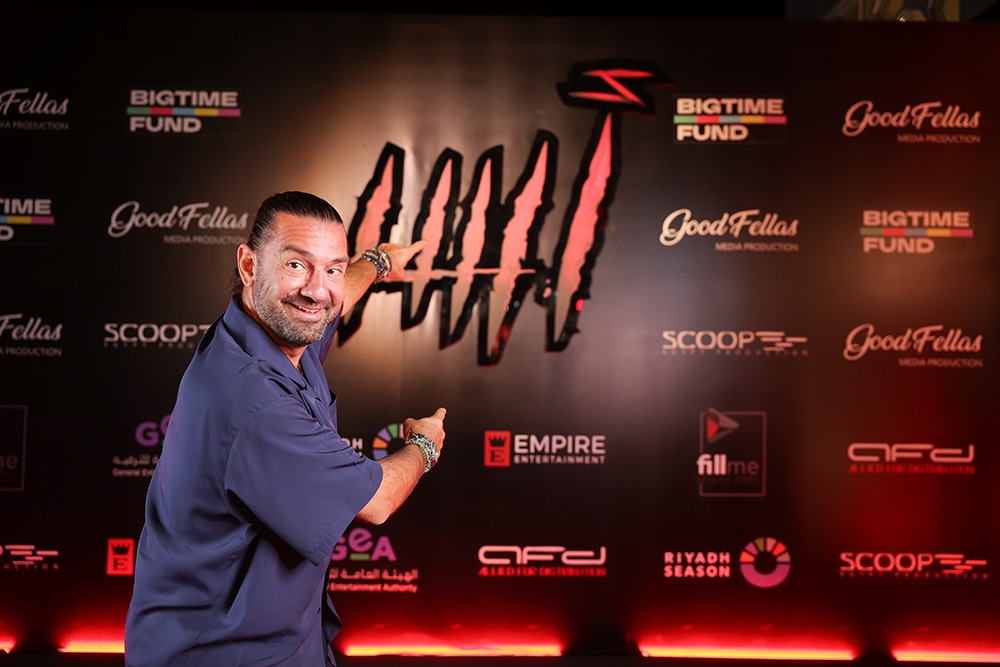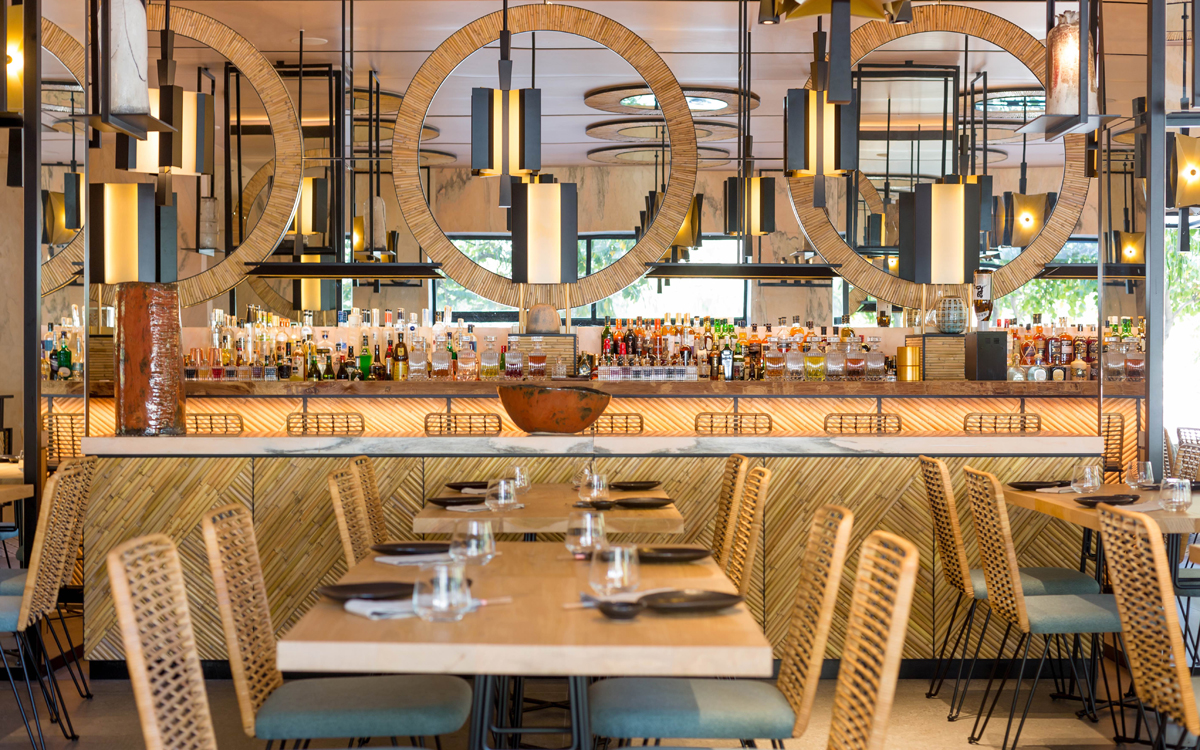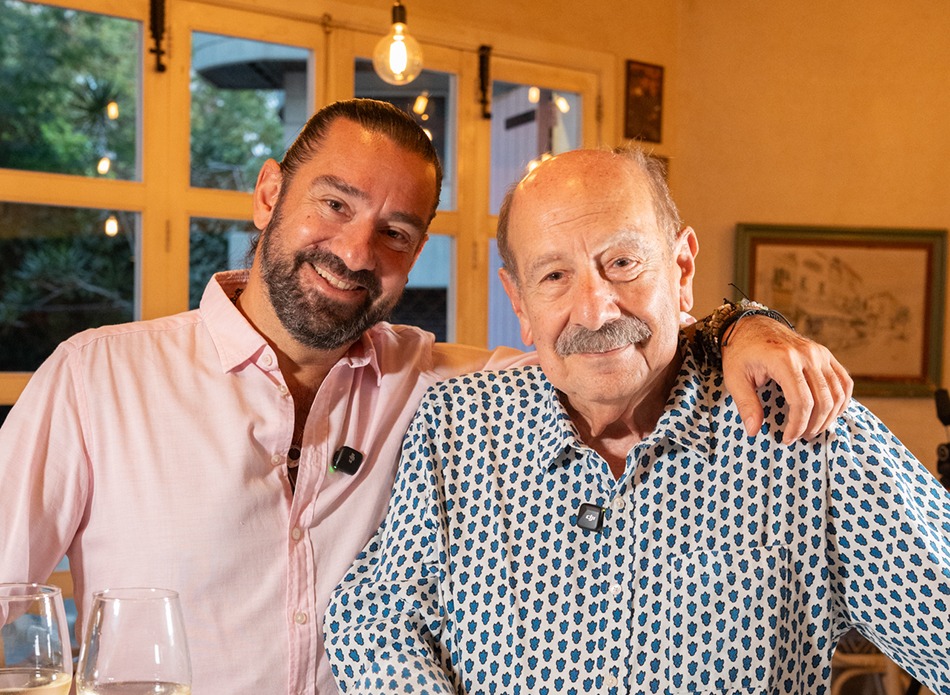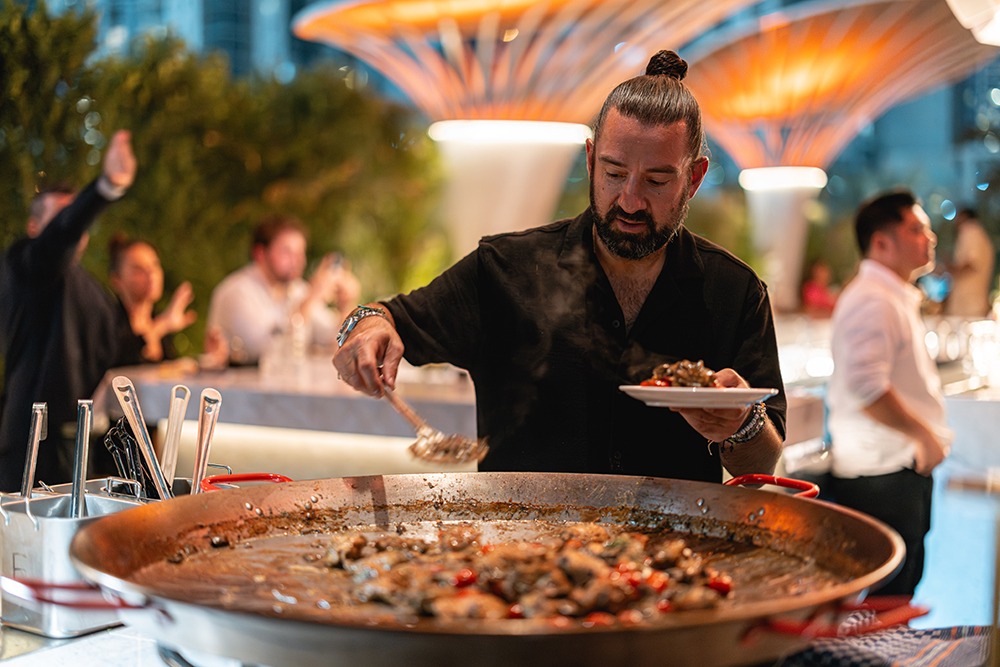Born into one of the Arab world’s oldest film distribution families, Mario Haddad Jr. grew up surrounded by cinema, creativity and the art of storytelling. But while movies were the family business, food was always the family passion — and Mario’s personal calling. Today, he’s behind some of Lebanon’s most iconic restaurant concepts — from Le Sushi Bar to Mario e Mario — and continues to shape the country’s dining and entertainment culture. We sat down with the charismatic entrepreneur to talk about how his journey from film reels to fine dining began and what continues to drive his love of hosting, creating and connecting through food.

Maged Helal Studio, Maged Helal Art Production LLC
How did your journey into restaurants begin?
I grew up in a household where food was important but the background of the family business was movies. My grandfather started the movie business in the Arab world in 1919 — so we’re a 106-year-old company now. My father and uncle took over as the second generation, and today, my brother Gino and I represent the third under the Empire name — Empire Cinemas, Empire Movies etc. Gino handles cinema operations mainly in Riyadh, and I handle distribution and production across the Arab world. While our world revolved around movies, food was always present. My dad cooks every day — he still does — and it was usually something Italian: pasta, risotto, anything. He loves Italian culture and cooking, so I grew up with those smells and that atmosphere at home.
What’s the link with Italy? Even your names — Mario and Gino — sound Italian!
Yeah, my dad is also Mario! The name isn’t really linked to Italy, but he fell in love with the country very early on. He lived there for a while, made friends and was completely immersed in Italian food, music and culture. He even represented Italian music in Lebanon and was decorated by the Italian president as Comandatore for his services to Italy. So yes, our family’s deeply tied to Italy. Maybe that’s why I grew up with such a passion for Italian food — though I still don’t know if he called us Mario and Gino because of that or just because he loved his own name so much!
You studied in London. Did that influence your food journey?
Absolutely. I studied in London because of the war in Lebanon, and that city opened my eyes to cuisines from around the world. Unlike France or Italy where you mostly eat local cuisine, London is a melting pot. You get exposed to Indian, Asian, Middle Eastern — everything. At the time, my parents sent us very limited money because my dad worried we’d spend it on all the wrong things. So after spending my allowance too quickly, I started cooking at home to entertain friends. I’d make risottos or paellas. That’s how I started honing my skills.
When I moved back to Lebanon, I worked in the family business but always felt something was missing. I wanted to create something. The only thing I really loved outside film was food, so I decided to open a restaurant with my brother and some friends. My dad was totally against it — he wanted us to stay focused on Empire. So we presented a plan and asked for a bank loan to open a sushi restaurant. This was 1997 — no one knew what sushi was in Lebanon! The bank manager said: “Lebanese people like their fish fried or grilled, not raw!” We didn’t get the loan, so pitched the idea to friends. They believed in us. That’s how Le Sushi Bar was born.
That was the first sushi restaurant in Lebanon, right?
Yes — the very first. We opened in 1997 on Monot Street on the first floor above what’s now Little China. We couldn’t afford the ground floor. We stayed there for six years before moving to Abdel Wahab Street in 2003 then downtown in 2019. At the beginning, it was chaos. We didn’t know what we were doing. For almost 40 days, we served food for free to friends and family just to test it out. Word spread fast — this was pre-social media — and people came because they heard there was a restaurant serving free sushi. By the time we started charging, we were booked solid for three weeks. It turned into a massive success.

Le Sushi Bar – Downtown Beirut
What did you learn from that experience?
I learned that my passion wasn’t just food — it was hosting. I love creating experiences, bringing people together. When I’m alone, I never cook for myself, but I’ll cook for others anytime. I later trained with Michelin-star chefs to improve my culinary skills, but my real strength is hospitality and making people feel good. That’s been the secret ingredient to everything I’ve done since.
What about the other concepts?
After Le Sushi Bar, I was hungry to do more. I opened Rai in 1999 — inspired by a Moroccan lounge I visited in London called Momo’s. It was Lebanon’s first Moroccan lounge, fusing Arabic and Berber music with Western influences. It was a big hit. Then in 2000, we opened Asia, Lebanon’s first rooftop restaurant, on top of the Asayli building — what later became Capitole. That was before rooftop dining became a thing. Each project was pioneering in its own way. Later came Al Falamanki, Sushi Express, Junkyard and others. With time, I started seeing F&B as a proper business — creating structure, back office, processes.
Did you have a mentor guiding you throughout your journey?
No, not really. It was a self-taught journey. I made a lot of mistakes, but that’s how I learned. Successes don’t teach you much — you just enjoy them. Mistakes make you analyze, adjust and grow. I’ve learned much more from failures than from victories.

Mario Jr. with Mario Sr. at Mario e Mario
How did Mario e Mario come to life?
Mario e Mario is very dear to my heart. My dad was always a bit heartbroken that I was so focused on restaurants instead of the family business. To make peace, I told him one day: “My next project will be an Italian restaurant — and I’ll call it Mario e Mario after you and me.” He loved the idea, even did interviews about it, but it took years before I actually made it happen. Then one day, I found a charming little house in Mar Mikhael that had been an Italian restaurant but didn’t succeed. I took it over, brought a chef from Calabria and built the restaurant I had imagined. When it was ready, I told my dad there was a new restaurant opening. As we drove, he looked up, saw the sign, and said: “Look at these guys — they stole our name!” Then we walked in, and he saw photos of us cooking together on the walls. It was a full-circle moment.
Where do you like to spend your free time?
I’ve fallen in love with Batroun. During Covid-19, I started spending time there and ended up opening a little beach shack that became Mariolino. There’s something authentic and peaceful about Batroun — a fisherman’s town with real soul. I still have a home there and go there regularly.

What projects are you working on these days?
I’m opening a hotel in Egypt, on the North Coast, called Mariolino Beach House. It’ll be a guesthouse where I’ll live and host personally. I’ve always loved the laid-back energy of the North Coast — it’s the next chapter in hospitality for me.
If you weren’t doing this or working in the family business, what would you be doing?
Honestly, I don’t know. I’m lucky to have found what I love early on. I’m a workaholic, but it doesn’t feel like work. Whether it’s producing films, cooking or hosting, it’s all storytelling and connection. Hosting is my art form. And I think that’s what ties everything I do together — movies, food, hospitality — it’s all about creating experiences that people remember.
If you enjoyed reading this, check out our interview with Lebanese restaurateur Tony Ramy.
Loading
